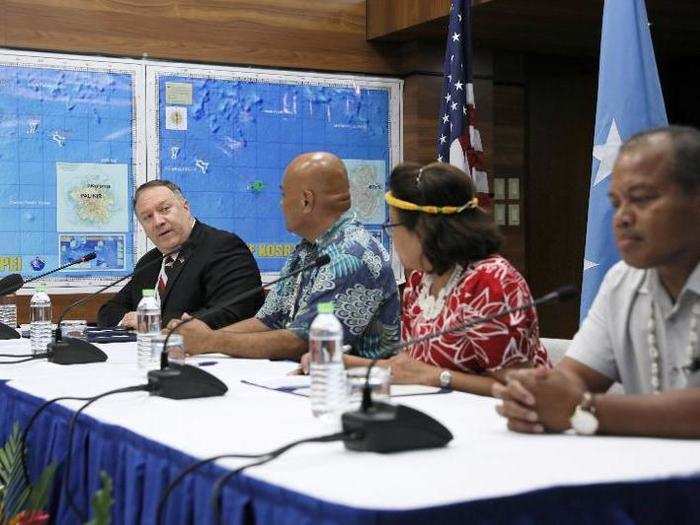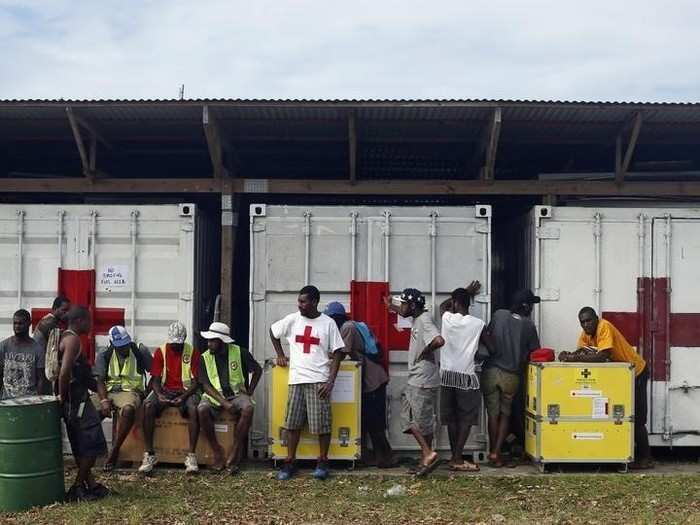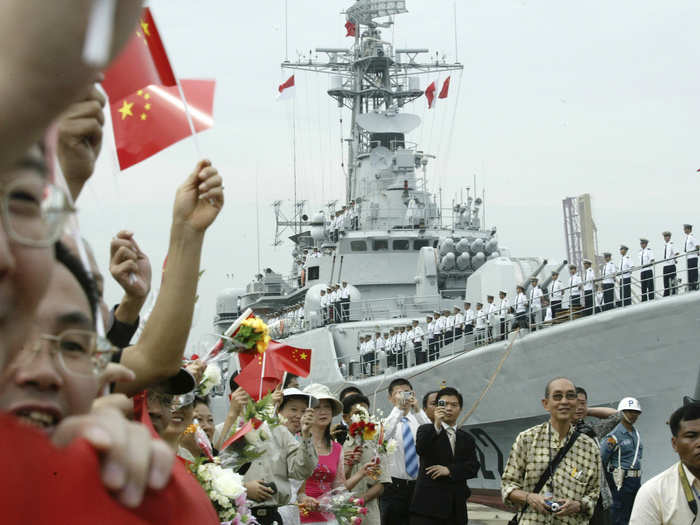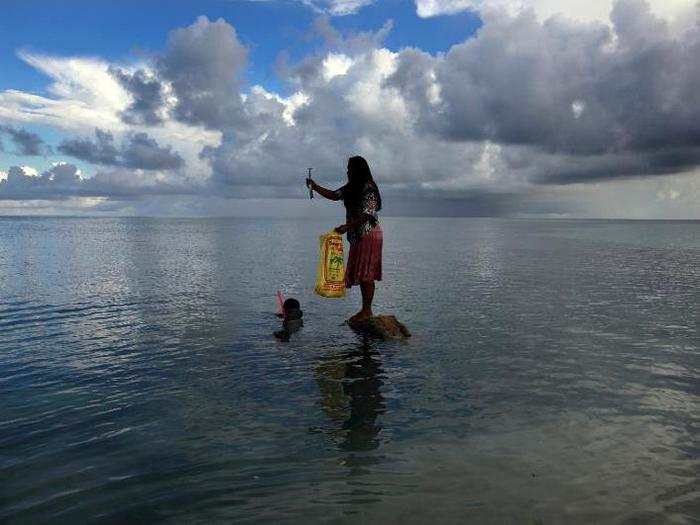- Home
- slideshows
- miscellaneous
- China is filling a 'strategic vacuum' in the Pacific left by the US and its allies, and that's bad news for Taiwan
China is filling a 'strategic vacuum' in the Pacific left by the US and its allies, and that's bad news for Taiwan
Christopher Woody: For the countries in the Pacific that have switched diplomatic recognition from Taiwan to China, what factors have influenced their decisions to do so?

Woody: What efforts have the US, its partners in the region, and other Western countries made to counter China's influence among Pacific Island countries, and how have those island countries responded to those efforts?

Powles: Since 2018 the US has sought to increase its diplomatic, defense, and security engagement in the Pacific; as has Australia with its own "Pacific Step Up," New Zealand's "Pacific Reset," and the United Kingdom's "Pacific Uplift,"
This has included big-ticket infrastructure initiatives such as the Papua New Guinea Electrification Partnership, a joint project between Australia, Japan, New Zealand, and the United States with the goal of connecting 70% of PNG's population to electricity by 2030. (Currently only 13% have access.)
The US has also created a dedicated director for Oceania position on the National Security Council. We are also seeing an increase in defense and security engagements with Pacific partners and the expansion of diplomatic posts. (Australia opened five new posts; the UK opened three new missions; New Zealand increased its number of diplomatic staff in Pacific posts.)
Australia launched the Infrastructure Financing Facility for the Pacific (AIFFP), a US$1.5 billion Pacific Infrastructure Bank package (although there is valid criticism that the Pacific Island countries don't need more loans).
Although many of these initiatives have been framed in terms of "countering China," there is a futility in this approach. Pacific Island countries have welcomed increased engagement, but there is a degree of cynicism also.
Pacific countries are very aware that this renewed interest in the Pacific is as a result of strategic anxieties about Chinese influence in the region rather than a genuine desire to engage with Pacific countries and support and amplify their interests and issues such as climate change.
Pacific countries have also been clear that they do not wish to be treated as pawns in a wider geopolitical game because they are acutely adept at navigating decades of geopolitical competition.
Woody: China has been accused of "debt trap diplomacy" in its dealings with smaller countries. To what extent has Beijing been able to use loans and other agreements as leverage over countries in the region, and what's the risk of it doing so in the future?

Powles: To date China has not been able to leverage its economic diplomacy with the region over issues such as recognition of its position on South China Sea issues (with the exception of Vanuatu).
Where there could be potential opportunities for greater leverage is if Pacific countries or territories are weakened by increasingly severe or frequent climate-related events, where they are potentially trapped in recovery and relief cycles and are dependent on external assistance in the form of loans, for example.
China could potentially seek to use disaster diplomacy in exchange for votes, for instance.
Woody: What do the US and its allies see as the strategic implications of growing Chinese influence among Pacific Island countries? Are China's relationships with those countries ones that would allow Beijing to access ports, airfields, or other infrastructure for military uses?

Powles: The strategic implications of growing Chinese influence in the Pacific are threefold: First, that growing Chinese influence equates to the diminishing influence of the US, Australia, New Zealand, and other partners. In actual fact, it was the benign neglect of the US and its partners in the Pacific which created the strategic vacuum which China stepped into.
Second, that growing Chinese influence in the region is shaping both governance and development outcomes in a manner which is favorable to Chinese interests and which will lead to a re-shaping of the regional order itself.
And third, that Chinese influence could upset the military balance in the region and lead to direct competition.
While there has been discussion around dual-use facilities in the Pacific, including ports, it is unlikely in the near future that Beijing would be given access to critical infrastructure for military purposes. That could change, however.
It is not unrealistic to consider a scenario where China deploys the PLA or PLAN to extract its citizens following a natural disaster and this leads to mission creep — perhaps an offer to contribute to reconstruction efforts and, down the track, training.
Woody: How has climate change — both addressing its causes and responding to its effects — shaped Pacific Island countries' attitudes toward China and Western countries?

Powles: The regional security declaration, the Boe Declaration (2018), states that climate change is the existential threat to the Pacific.
There is significant frustration, as we saw at the 2019 Pacific Islands Forum meeting in Tuvalu this year, with those countries such as Australia, who is a signatory to the Boe Declaration yet is failing to uphold its obligations, as well as the US having withdrawn from the Paris Treaty.
Pacific countries have demonstrated they have the moral currency when it comes to climate issues and are increasingly disinclined to support the strategic objectives of those countries who do not recognize that climate change is the existential threat.
The joke is while the focus is on China, it's climate change that is the ultimate strategic threat.
Popular Right Now
Advertisement